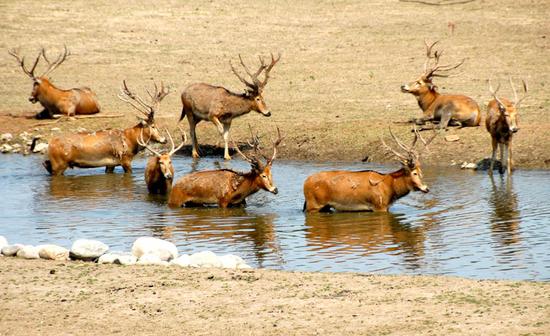
Milu, a deer species endemic to China that became extinct in the wild now inhabits the Nanhaizi Milu Park in Beijing's Daxing district. (Photo: China Daily/Geng Feifei)
Pandemic must force reassessment on how we treat planet, experts say
The pandemic should serve as a wake-up call for humanity to reexamine our relationship with nature and, in doing so, drive home the importance of efforts to conserve biodiversity around the planet, experts said.
While COVID-19 has focused minds on the deaths of millions and the everyday disruptions to ordinary life, it has encouraged many to "deeply reflect on our relationship with nature" as well as on what people can do to repair what needs fixing, said Li Lin, director of global policy and advocacy at the World Wide Fund For Nature International.
The coronavirus has made clear to the world that we are "in an intertwined crisis" and people should take action together on several fronts, Li said in an interview with China Daily.
"Climate change, biodiversity loss and health-those three intertwined crises actually should wake us all up to take careful actions, and not only address one problem at a time, but comprehensively and significantly work toward this one health system in a united way," Li said.
When Li speaks of the "one health system", she is referring to "the health of human beings, the health of ecosystems, and the health of social structures".
The wake-up call provided by the pandemic must make people realize that the natural system that has sustained us "may also be getting angry", with one sign of this coming in the form of the coronavirus jumping from animals to humans, the wildlife campaigner said.
"We're sorry for all those lives that were lost to COVID-19, especially during the time before we realized how we could deal with the pandemic," she said.
But the virus' arrival should be taken as an alert to the world, and an opportunity for people to work together to see what can be done to shift from fighting with nature to "living in harmony" with it.
"I hope the price we have to pay for COVID-19 can also benefit us. We will learn from it, and make decisions that can bring us to a more positive future, one in which human beings can live, survive and thrive together."
Elizabeth Maruma Mrema, executive secretary of the Convention on Biological Diversity, said the pandemic has brought the world's attention to the importance of biodiversity conservation.
She said the coronavirus may be viewed by some as nature exacting its own revenge on humans for their excessive consumption, pointing to the loss of forested lands to agriculture, a trend that has contributed to the threats facing the animal kingdom.
"We believe only when we see it," said Mrema, referring to people's traditional reluctance to heed calls to better care for the planet.
But she said the pandemic, especially with people experiencing lockdowns around the world, has increased people's awareness of the risks to biodiversity. And many have become more open to the messages from scientists.
"Probably in the last two years, nature has been understood more than in any other period of time in the history of mankind," Mrema said.
Transformative change
What's required is a "transformative change in our relationship with nature", and people must pay more attention to conserving biodiversity, Mrema said. "Biodiversity is the foundation of life."
Long Yongcheng, honorary chairman of the Chinese Primate Society, is keen to remind people that we should respect all forms of life, including viruses, as any number of them could prove useful in the future.
"Currently, the coronavirus is harmful to us, but it is very likely that when we have enough understanding of it, it may be beneficial to us," he said. "Or it may become beneficial to humans during its constant change."
Long, former associate professor at the Kunming Institute of Zoology of the Chinese Academy of Sciences, said biodiversity must be protected in order to ensure species and organisms do not disappear before their value to humans is discovered.








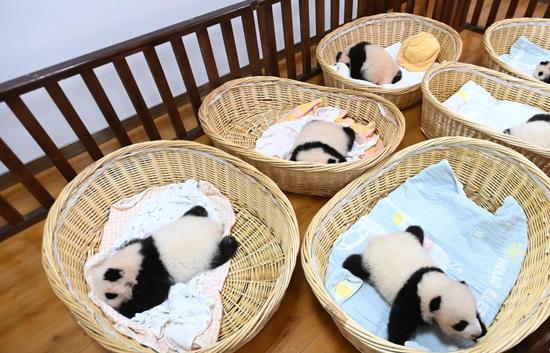
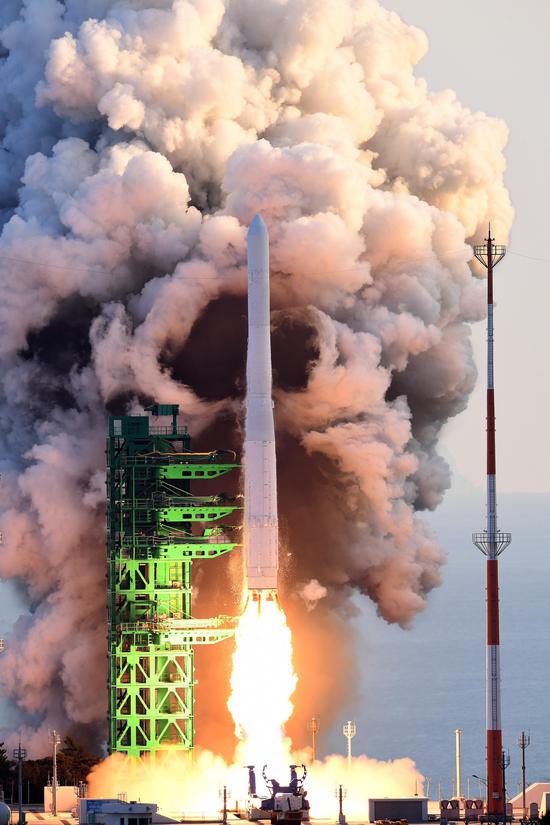


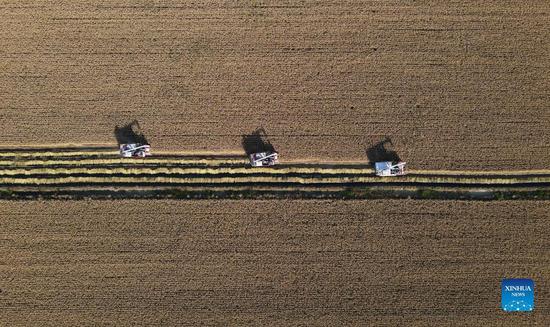





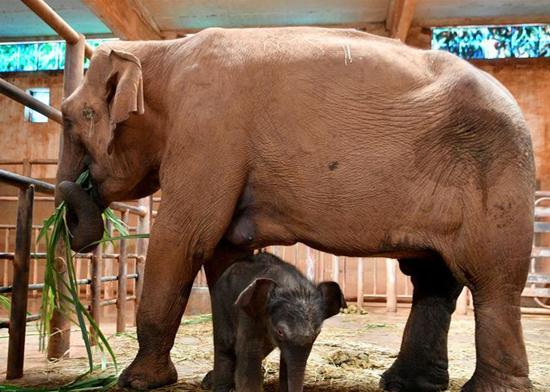







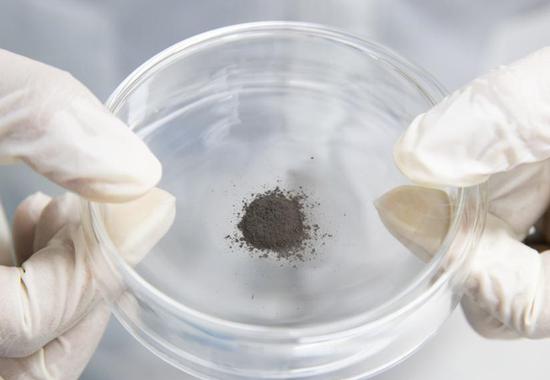

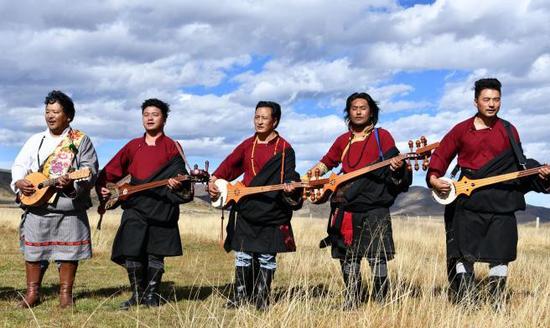

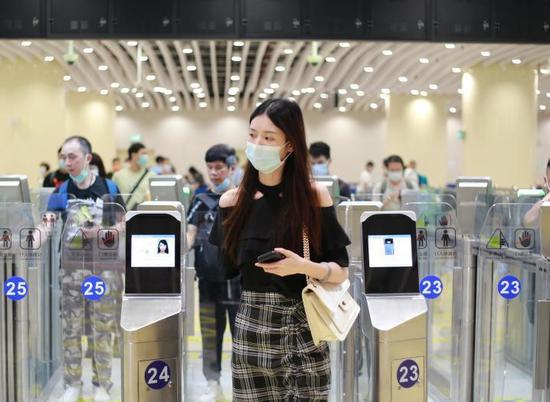



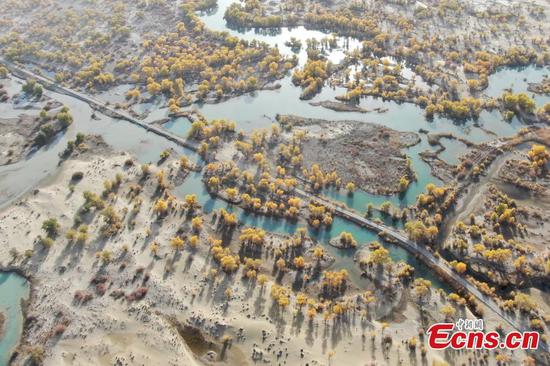

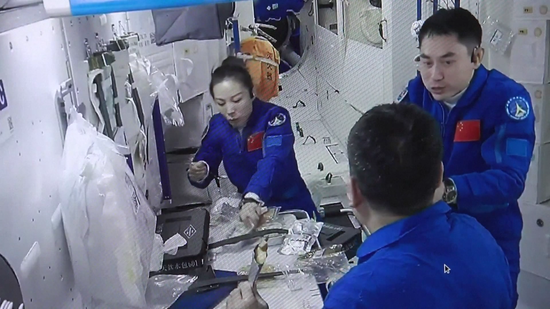

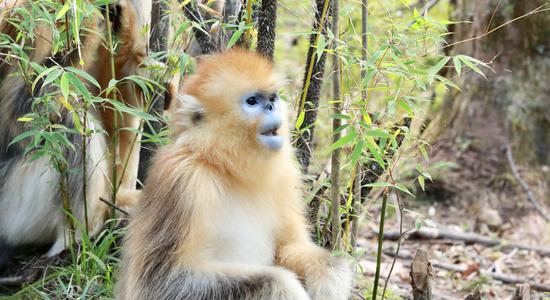

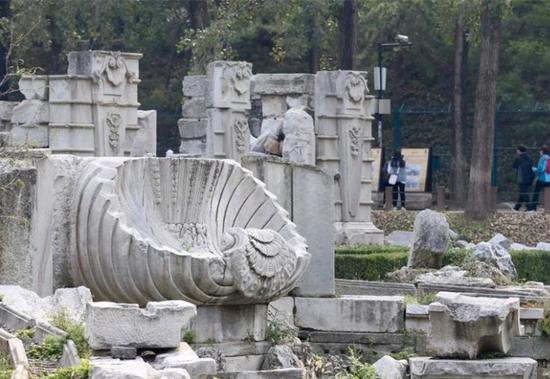

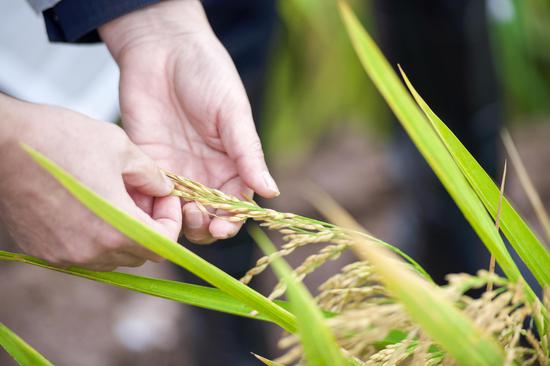

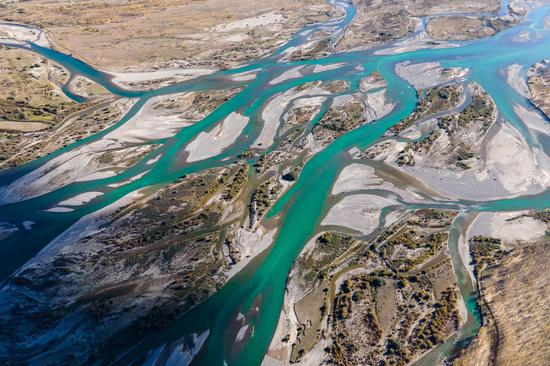





 京公网安备 11010202009201号
京公网安备 11010202009201号